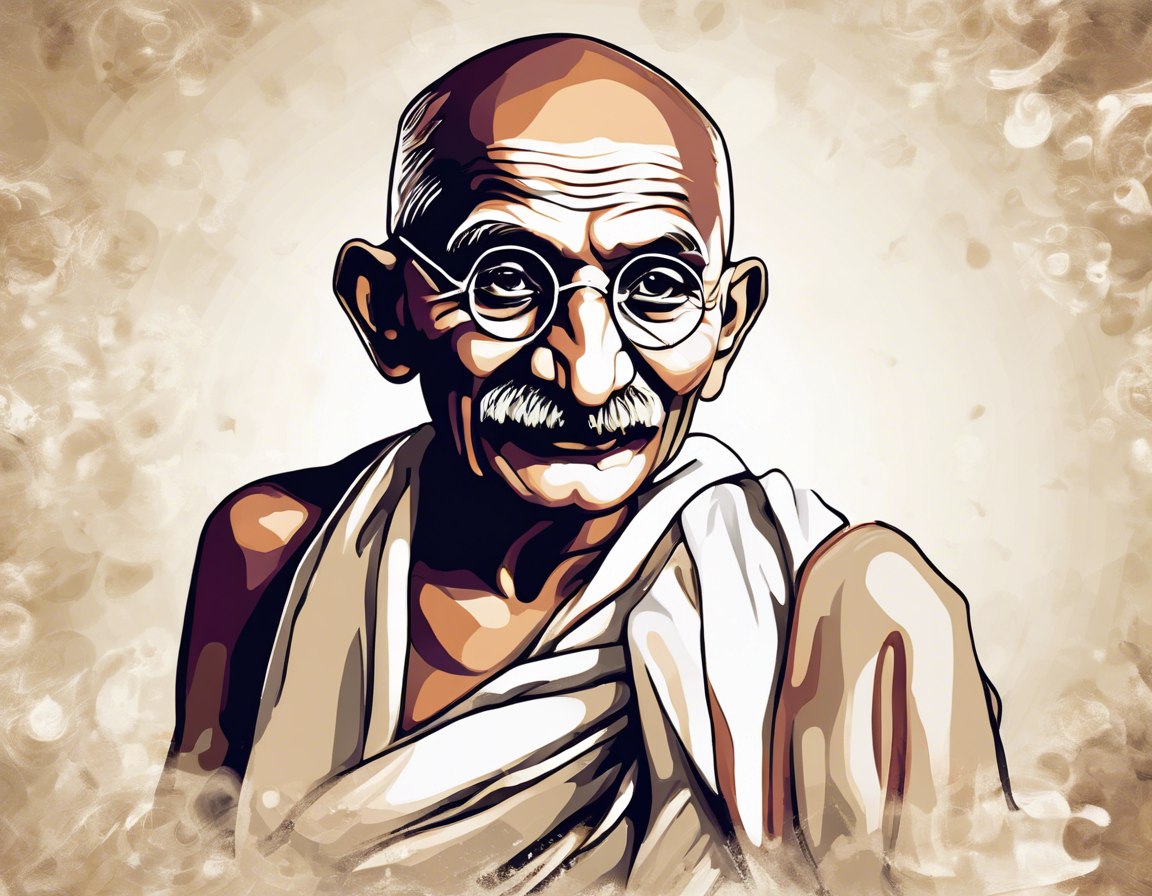Remembering Mahatma Gandhi: A Speech on his Jayanti


Today, as we commemorate the birth anniversary of Mahatma Gandhi, let us take a moment to reflect on the invaluable contributions and enduring legacy of one of the most influential figures in modern history. Mahatma Gandhi, also known as the Father of the Nation in India, was a visionary leader, a champion of non-violence, and a staunch advocate for social justice and human rights. His principles of truth, non-violence, and equality continue to inspire millions around the world.
In this article, we will delve into the life and teachings of Mahatma Gandhi, examining his philosophies, his remarkable journey, and his impact on the global stage. We will explore the relevance of his teachings in today’s world and how we can strive to uphold his ideals in our daily lives.
Early Life and Influences
Mohandas Karamchand Gandhi was born on October 2, 1869, in Porbandar, a coastal town in present-day Gujarat, India. His upbringing was rooted in the values of compassion, honesty, and self-discipline, instilled in him by his devout parents. Gandhi’s early years were marked by a deep sense of introspection and a quest for truth and morality.
Gandhi’s worldview was profoundly shaped by the teachings of Hinduism, Christianity, and Jainism, as well as the philosophies of great thinkers such as Henry David Thoreau and Leo Tolstoy. These influences laid the foundation for his later adoption of Satyagraha (the insistence on truth) and Ahimsa (non-violence) as the cornerstones of his philosophy and activism.
The Path to Nonviolent Resistance
Gandhi’s journey as a social and political activist began in South Africa, where he experienced racial discrimination firsthand. His efforts to combat injustice and oppression led to the development of his unique form of civil disobedience, emphasizing the power of peaceful protest and passive resistance. Gandhi’s campaigns in South Africa, such as the Indian Relief Bill and the Satyagraha movement, demonstrated the potency of nonviolent resistance in effecting social change.
Upon his return to India in 1915, Gandhi emerged as a pivotal figure in the Indian independence movement against British colonial rule. Through a series of nonviolent protests, boycotts, and fasts, he galvanized the Indian populace in their struggle for freedom and self-determination. The iconic Salt March in 1930, where Gandhi and his followers marched to the Arabian Sea to protest the British salt monopoly, exemplified the power of nonviolent activism in mobilizing mass support.
Gandhian Principles and Practices
Satyagraha and Ahimsa stood at the core of Gandhi’s philosophy and action. Satyagraha, meaning “truth force” or “soul force,” was based on the belief in the ultimate triumph of truth and the power of the individual soul. Through non-cooperation and nonviolent resistance, individuals could confront oppression and tyranny without resorting to violence.
Ahimsa, or non-violence, was a principle Gandhi held sacred. He believed that violence begets violence and that true courage lay in resisting injustice through peaceful means. Gandhi’s doctrine of nonviolent resistance inspired countless movements across the globe, including the American civil rights movement led by Dr. Martin Luther King Jr. and the anti-apartheid struggle in South Africa led by Nelson Mandela.
Relevance in Today’s World
In an era marked by conflict, inequality, and injustice, Gandhi’s message of peace and nonviolence remains as relevant as ever. The principles of Satyagraha and Ahimsa offer a profound framework for addressing contemporary challenges and promoting dialogue, understanding, and reconciliation.
Gandhi’s emphasis on simplicity, self-discipline, and sustainability resonates with the urgent need to confront climate change and environmental degradation. His advocacy for interfaith harmony and tolerance serves as a potent antidote to the rising tide of xenophobia and religious extremism.
How to Embody Gandhi’s Teachings
To honor the legacy of Mahatma Gandhi is to embody his teachings in our thoughts, words, and actions. Here are some ways in which we can strive to uphold his principles in our daily lives:
- Practice Nonviolence: Resolve conflicts through dialogue and compassion, rather than aggression.
- Promote Social Justice: Stand up against inequality, oppression, and discrimination in all its forms.
- Embrace Simplicity: Cultivate a life of simplicity and sustainability, mindful of the impact of our choices on the planet.
- Lead by Example: Be a beacon of integrity, honesty, and humility, inspiring others through your actions.
- Cultivate Inner Peace: Nurture your inner well-being through meditation, self-reflection, and mindfulness.
Mahatma Gandhi’s legacy is a timeless reminder of the transformative power of love, integrity, and courage in the face of adversity. As we commemorate his birth anniversary, let us recommit ourselves to building a more just, compassionate, and sustainable world for all.
Frequently Asked Questions (FAQs)
1. Who was Mahatma Gandhi?
Mahatma Gandhi, also known as the Father of the Nation in India, was a visionary leader and activist who championed nonviolence, civil rights, and social justice. He played a pivotal role in India’s independence movement against British colonial rule.
2. What are the key principles of Gandhi’s philosophy?
Gandhi’s philosophy was based on the principles of Satyagraha (insistence on truth) and Ahimsa (nonviolence). He believed in the power of peaceful protest, civil disobedience, and the inherent dignity of every individual.
3. How did Gandhi’s teachings influence other movements around the world?
Gandhi’s philosophy of nonviolent resistance inspired numerous movements for civil rights, social justice, and freedom across the globe. Leaders such as Martin Luther King Jr. and Nelson Mandela drew inspiration from Gandhi’s methods in their struggles against oppression.
4. What is the significance of Gandhi’s Salt March?
The Salt March, led by Mahatma Gandhi in 1930, was a symbolic act of civil disobedience against the British salt monopoly in India. It galvanized mass support for the independence movement and highlighted the power of nonviolent protest.
5. How can we apply Gandhi’s teachings in today’s world?
By promoting nonviolence, social justice, simplicity, and dialogue, we can embody Gandhi’s principles in our daily lives. Upholding integrity, compassion, and sustainability are key ways to honor Gandhi’s legacy and work towards a more peaceful and equitable society.
- 364
- 0

0 Comments